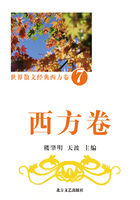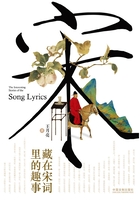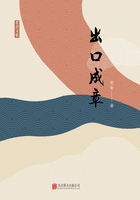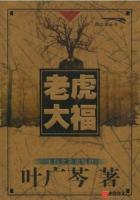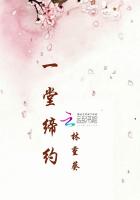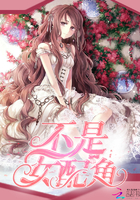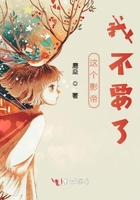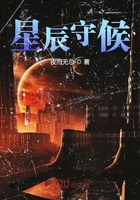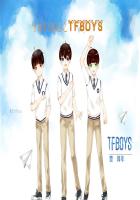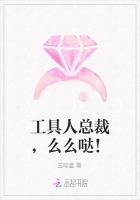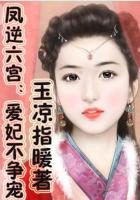Yang Lian
‘Poetry is untranslatable' says the cliché. Even people who are hardly specialists in the field can quote Robert Frost's dictum, 'Poetry is what is lost in translation', which is so widely known that it has even provided the title for a Hollywood movie. But on a superficial examination, is the truth of these assertions open to challenge? To go deeper, the facts are these: a translation is not the original text, nor need it attempt to duplicate the original. The translation of a poem must itself be a poem, and must be another different poem. It will be an alloy, jointly forged by the original poet and the poet-translator together. The more elegant and tightly-structured the original, the greater will be the demands on the translation, and the greater the difficulty of forging that alloy. 'Untranslatable'? 'Lost in translation'? It's not that simple. We ought really to be asking how we translate poetry, how we might face the impossible - or even, how we might begin from what is impossible.
Walter Benjamin was a critic of surpassing insight. He called translation 'The Third Language', because a translation is neither the same as the original, nor the same as the normal foreign-language of other texts, for it is something unique, something set apart from either, just as bronze forged from copper and tin overcomes the brittleness of copper and the softness of tin to become both hard and pliable, as if it has become a new element - and that allowed the great artists of the 2nd millennium BC Shang dynasty to cast their magnificent masterworks in bronze. To take a more realistic figure of speech, translation is not felling trees, but planting them: felled trees hauled to another site are dead, and will remain so, but a tree-planter is a kind of diver, who dives from leaf-tips through veins and trunk to roots back down to the source of a work of art, and from that experience of the moment of creation, brings back a total understanding of the work's structure, then grows the tree of the translation in another tongue. These two different trees sharing a single root are not, of course, identical, but they are living likenesses of each other. 'The Third Language' appears to say this: the vast ocean of poetry has more than two shores, for it has a third one too. The dialogue - positive, benign, virtuous - between poet and translator, in that it allows the essential elements of both languages to be stripped bare, is the optimum formula for the reinvention of both. This is a chemical reaction that is beautiful, miraculous, tortuous and circuitous, and no-one who has not witnessed it can understand the wonder of it. Hence, the eyes of the famous presenter of a BBC literature show widened in surprise when I said that there is both loss and gain in poetry translation.
There is a proud tradition of Chinese poetry in English, and it extends to the two extremes of Arthur Waley's graceful fluency and Ezra Pound's conceptual originality. The 7th10th century Tang poems that Waley translated are universally acknowledged to be beautiful English poems, with their carefully structured metres, rhythms, and forms, the very image of poems from the hand of a native English speaker. Perhaps the daunting nature of the formal difficulties involved gave him a tendency to avoid the challenge of 'fighting on two fronts', and he was at his happiest translating the gratuitously fluent verse of Bai Juyi and other poets like him. In direct contrast, the great poet Pound's interests were precisely focussed on the abstruse nature of linguistics itself. Out of the structure of Chinese characters, he created his concept of the image, emphasising the use of specific, concrete images to embody thought, and so at one fell swoop he changed the whole face of English poetry. While Rilke was still waxing lyrical in German over non-specific images like The Angel and The Rose, T.S. Eliot had already broken through to
When the evening is spread against the sky
Like a patient etherized upon a table.
Though they could not have known it, these two great masters, Waley and Pound, had opened the door to interaction between Chinese and English in today's globalised context. Chinese and English - one with an unbroken 3,000 years of creative transformation from within, and the other, the international medium of exchange, spread across almost the entire surface of the earth. (And who, on the streets of Beijing today, can leave another without uttering Bye-bye?) Now, the ideological significance of the interaction between Chinese and English has far surpassed the significance of either language alone: by making apparent the plight of the world we all live in, it has inspired all of us to find our own answers to the predicament we are in. This dialogue between time and space, arising from collision, conjecture and convergence, is the very being of 21st-century humanity.
The title of this preface, The Third Shore of the Sea, aims to point out the two levels on which poetry probes the deep sea: firstly, the poems as concrete objects; secondly, their prototypes - the life of a human rooted in a spiritual predicament. In 21st century China, tossed by storm after storm, there isn't even calm water to be had, far less any port. More than that, though, in this world of enforced global profiteering, cynicism and frivolity, what culture is still untarnished, the elegance of its days still intact? Any poem in any language is a deep-sea explorer penetrating its own vast ocean with the quivering probe of language, registering every sea-floor earthquake with its remote-sensing telemetry. If poets translate each other's work, this dialogic translation is the gentle piercing of that probe's point. 'Dialogic translation' is a very general term here, allowing as it does for more than the classical one-on-one that 'poet to poet' might seem to imply, and including in its purview every possibility of encounters between Chinese and English. It is this broader sense of 'one-on-one' that more exactly accords with its basic meaning. The precious trees sharing a single root spring from Life turning back to Life to let humans return to a radical understanding of each other. So this book is no mere jejune tale of cultural sightseeing, but rather the outcome of a community that was destined to come into being. So poetry, by opening this up and giving feedback to its creators, becomes worthy of the rank and title of 'The Unique Mother Tongue'.
The work selected for this anthology represents a brief summary of several years of poetic exchange between Chinese and English: in 2004, poets met for the first time to co-translate at the Wansongpu Academy in Shandong Province; in 2005, the dialogic translation was held at the Cove Park artists' retreat in Scotland; in 2006, the ZhongKun Poetry Foundation organised a trip into the Pamir Mountains in Central Asia, which gave the poets more chances to explore both the idea and the project; in 2007, the translation dialogue was organised by Huangshan District in Anhui Province (I still remember a delightful moment when the Nigerian poet Odia Omeifun and I compared the musicality of African oral literatures with the tones of the Chinese language); in 2008 the Yellow Mountain Poetry Festival took place in both Wales and London - this was the world's first-ever Chinese-English poetry festival, and English-speaking poets came from the UK, the USA, New Zealand and Nigeria, showing how English writing has been transformed by contact with different cultures. The most significant activity since then has been from 2008 to 2012, when the Scottish poet W.N. Herbert and I entered into an alliance with the doyen of contemporary Chinese poetry in English translation, Brian Holton, and the Chinese literary critic Qin Xiaoyu, to produce Jade Ladder, an anthology of contemporary Chinese poetry in English. Jade Ladder runs to almost 400 pages, and in its choice of original poems, its overall structure, and even in the worked fullness of its translations, it is an 'Extreme Book'. Through the poetry it presents, it opens up, layer by layer, China's present reality, thought and culture. The book is in six parts, each corresponding to one poetic form:
LYRIC POEMS: directly instituting a dialogue with China's most important poetic tradition;
NARRATIVE POEMS: confronting the greatest weakness of Chinese poetry;
NEO-CLASSICAL POEMS: formalist, and proud of it;
SEQUENCES: a profound statement of how structure completes thought;
EXPERIMENTAL POEMS: conceptual art in Chinese characters;
LONG POEMS: the penetration of every ocean current from the sea-floor of linguistics, upward to a panoramic view of current tempests and storms.
Jade Ladder may be thought of as a mind-map of China through the last thirty years, or, as Fiona Sampson, editor of Poetry Review, the UK's premier poetry journal, put it when commending the Yellow Mountain Poetry Festival in an e-mail to me, "Every detail is built on a profound understanding of poetry". This base of detailed understanding is what has allowed dialogic translation to happen over the last few years. I have called this series of steadily deepening activities the Art & Thought Project. Without it, the great and rapidly-changing book of China would be impossible to open, let alone understand. Poetry gives us a form with which to handle life. We can slip in and taste our partner's ocean via translation, to see more clearly where we stand. And, oh, how happy we are in the bodies of flying fish, as we stir up the waves of both oceans!
No need to be shy about it: when poets translate poetry there are both strengths and weaknesses. Very few poets can be dignified with the title of 'translator' because, and there is no way to avoid saying this, our foreign-language skills are limited. But, and this is a point to note, our strength is in our lightning-quick grasp and profound comprehension of any poetry whatever. This resembles another proposition of mine, that poetry is 'a tower built from the top downward'. This profound comprehension pours down and awakens every organ in the poet's body, opening it up to language. A string of MUSTs: harsh and exacting reading, merciless interrogation, re-created sorrows and joys. An infinite number of WHYs: why is this structure needed, why is this rhythm needed? How are meaning and form interacting? The poet, used to flying along on his bicycle and choosing any route he pleases, has now become an engine driver, destined to collide with every rock on the rails! Our work is the opposite of the cute posing that most people imagine, as it actually involves a lot of dull, unthinking effort. Two poets, with sometimes an interpreter added for the express delivery of language, go head to head and eyeball to eyeball, notebooks in hand, terrified lest the slightest nuance is missed. In what sense is this 'reading'? It's clearly an operating theatre, where image after image, line after line, the flesh and the bones of a dissected poem are exposed, until, with a puff of magic, we bring it back to life again! What does it feel like to detonate a poem? What is its historical background, its literary inheritance, its cultural challenge? The right of explication is now out of the creator's hands, because this invasive probing of dialogic translation is no less professional than the author's own. Anyone who tries to hide behind the excuse that 'poetry is untranslatable', or who hides behind the images and plays dumb, will not escape this microscope. The two key words here are PROFOUND and PROFESSIONAL - note the euphony here - and for both the translator and the poet being translated they bring an equal test. To see your own work subject to the scrutiny of another - how can that not be significant? Does evaluation smash it into smithereens? Or does one ocean go surging into the other? The results of these tests are really interesting too: the fewer the ideas in the original, the easier will translation be. Any translator can arbitrarily cook something up from a heap of raw material, and it is often the case that the translation has more flavour than the original, but on the other hand, an original whose form and connotation are crafted with precision will have the translator racking his or her brains, caught between conflicting priorities, and more often than not feeling he or she is not up to the task at all. To take an example of my own, the very intelligent Pascale Petit grabbed my attention when she said, "Only you could translate Mirror Orchid", but it wasn't until I got my hands on it that I saw what she meant: the long lines reminiscent of Saint-John Perse, the gorgeous and complex images with their intriguing mixture of tension and release, and all controlled by the dexterity and rigour of English grammar - these unerringly show up the Achilles heel of the free and unfixed grammar of Chinese. Take this line, for example —
the fossil-flowers with stone petals and sulphur stems
here, the F and S sounds are entwined in euphony, like two rattlesnakes. In response to this, all I could do in Chinese was
huashi hua you shihua ban
Sean O'Brien's acerbic political poem Another Country is given an exquisite beauty and delicacy by the use of strict rhyme, and I wasn't going to be beaten at that game. In George Szirtes' Water, the AB rhyme scheme is so meticulously and systematically intertwined with the rhythm that the translated text must mark and shadow every one of these moves from beginning to end. His Asylum is another beauty: in it, a poet of Jewish extraction unexpectedly uses the German word Gesundheit to comic effect. Good lord, what was I to do with that? Then the penny dropped, and I used the kind of broken Chinese the Imperial Japanese Army used in WWII.
The majority of poets involved in dialogic translation are in their thirties, forties and mid-fifties, so, because of their age, they are self-aware users of language, well supplied with experience of life, mature in their thought and creative powers. More important, though, is the globalised context (or predicament?) of our own personal experience; the profound level of exchange this makes possible is not just important, but indispensable. For as long as humans have made poetry, poets have been aware of one thing: there is only one sea, and you either dive in and swim deeper into it, or you simply don't get wet. Dialogic translation implies mutual assessment: with reference to so many multi-faceted cultural systems, can a poet's creative work still be 'valid'? The steamroller of globalisation is flattening all the previous supports for communities: ethnicities, nations, cultures, languages, ideologies - even the dividing line between East and West - until all that is left is
A man taking the road shoulder to shoulder with the universe[1]
Yet this road is not solely one that leads toward the outside world, because it is even more an inward one, for, in the final analysis, all the burden of the world falls on the shoulders of the individual. And this is the true significance of dialogic translation: as we weigh each and every word, sharing layer after layer of meaning, then here, in the deep places of every culture our own personal powers are interrogated. This focus on The Third Language makes manifest the Third Shore of the Sea, transcending the limits of geography, as well as the narrow limits of culture-bound psychologies, and exemplifying the common course of our shared humanity. Now, is The Third Shore of the Sea excavated from the sea-floor, and simultaneously surveying us from the heavens? I have described the ecology of the internet as like the ocean, with culture the boat, and poetry the ballast in its hold. Poetry keeps the boat stable, preventing it from rolling and yawing or drifting with the current. On The Ocean's Third Shore all you need is to think a poem is good for it to become your own. Any volunteer, through writing, translation, criticism, reading, even a beginner whose first lessons have touched on translation, can land here, right on The Third Shore of the Sea.
IT/IS/IN/SIDE/US
An unbroken and forever unfolding shoreline that transcends time and space is even now weaving a worldwide web of co-translating poets. Here is the genuine, the magnificent Art & Thought Project. Faced with that, this anthology of dialogic translation into Chinese and English is only a first attempt, only a beginning.
(Translated by Brian Holton)
Note
[1] From my own unpublished Narrative Poem.

